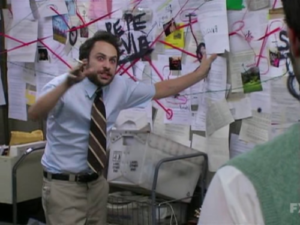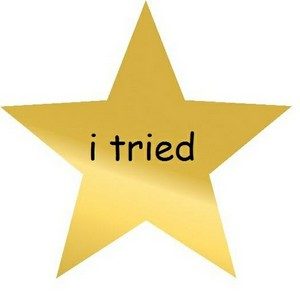
🔪🔪🔪📝#5PEssay
Do writing robots dream of electric Schaffer?
Ah the old five paragraph essay. I have not so fond memories of having to fill in the little worksheets out for all my high school English classes. I felt like a machine just hashing these things out simply for the sake of it.

Writing in this formula felt more like tedious paperwork that didn’t teach me anything other than structure. And while I agree with Wiley that if taught as one of the many writing strategies it can prove to be useful, school teaches students to rely solely on this restricted formula, which gives them very little room to think and explore beyond its limitations. The five paragraph essay is a stepping stone: a place that can get us on the path we need to go but it isn’t a be all, end all solution. I like how Wiley puts it in that, “writing contexts vary, writing tasks vary, and our students, in order to grow and succeed as writers, must gradually develop a repertoire of strategies for identifying and then handling the differences each situation presents” (66).
As we’ve discussed in class, there is a lack of voice and personality within this formula to the point where it can be stifling and detrimental. Stommel noted in “The Twitter Essay” on how, “Students aren’t terrified to send text messages or post status updates to Twitter or Facebook, but they are often terrified to write academic papers.” So this fear puts students two steps back rather than three steps forward. It limits how writing is approached because of the fear of failure. It is certainly a feeling that I felt when in high school and still do.
http://giphy.com/gifs/brooklyn-nine-v0rNv3kxwQDDO
Even with this blog there still exists in me this small, ingrained fear that I’m somehow doing it wrong. It’s a dumb fear but one that persists all the same. There have been times in college where I felt like a writing robot that can’t react without a command that been prompted by the teacher. And all that is just baggage that I’ve carried over from all the years of schooling. It’s been hard sometimes to detach myself from that formula and from that way of thinking about writing in such a rigid form.
It’s why I kind of like things like the Twitter essay because it breaks down the expected form of what constitutes an essay. It’s not necessarily easier, but it is different and it allows for students to stretch their writing legs in such a unique way. These kinds of approaches push back against the form, yet it’s not without its own rules and I find that so interesting.
Combining Stommel’s and Wily’s approaches, it’s clear that there are ways to continue to change the way that writing is handled in school and that it can exceed the boundaries of an overused, stagnant formula. It is not like the system is leaving teachers without the means or ways to do so. Change is hard and I’m not saying that it would be so easy as to simply make the Schaffer method disappear off the face of this earth. I’m not that idealistic. But there needs to be a shift in code that will benefits students in the long run. Ultimately, school writing needs to be rewired to prepare us for all kinds of writings, instead of relying on singular system that only gets students by. It’s time for an upgrade. We are long overdue one.








